The world of competitive video gaming and esports has grown exponentially in the past decade, and as 2025 approaches, esports events have become more than just tournaments—they’re grand spectacles that combine gaming, entertainment, and community. Whether you’re planning a regional competition, a global championship, or an industry conference, esports event planning requires a deep understanding of both the gaming industry and the needs of fans, sponsors, players, and partners. If you’re ready to dive into the exciting world of esports event planning in 2025, this guide has everything you need to get started.
1. Understanding the Esports Industry Landscape in 2025
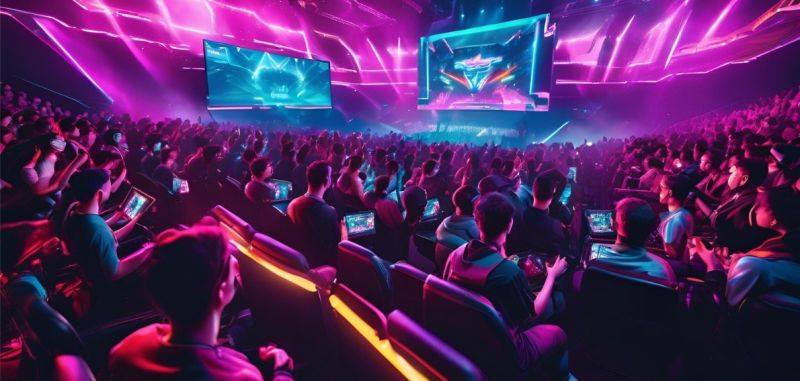
As we move further into 2025, the esports industry will continue to evolve. Major esports events now attract millions of viewers worldwide and are seen as high-profile entertainment, often blending with traditional sports in terms of production value and fan engagement. As a result, planning a successful esports event requires a keen understanding of the landscape and effective esports event management.
Key Trends in Esports in 2025:
Hybrid Events: Many esports events will operate in hybrid formats, combining in-person experiences with virtual streams. The pandemic accelerated this shift, and now it’s a common feature in event planning.
Increased Fan Engagement: Fans are no longer passive viewers—they want to participate. This is reflected in the rise of live fan voting, virtual meet-and-greets with players, and interactive experiences like AR and VR.
Integration with Traditional Sports: More esports organizations are partnering with traditional sports leagues and broadcasters to gain wider recognition and sponsorship. These crossovers will continue to increase in 2025.
Focus on Sustainability: With growing awareness of environmental issues, esports events will increasingly implement eco-friendly practices, such as using sustainable materials, offsetting carbon emissions, and reducing waste.
Partnering with Gaming Communities: Leveraging established networks and influencers within these communities to effectively promote tournaments and engage participants.
2. Choosing the Right Type of Esports Event
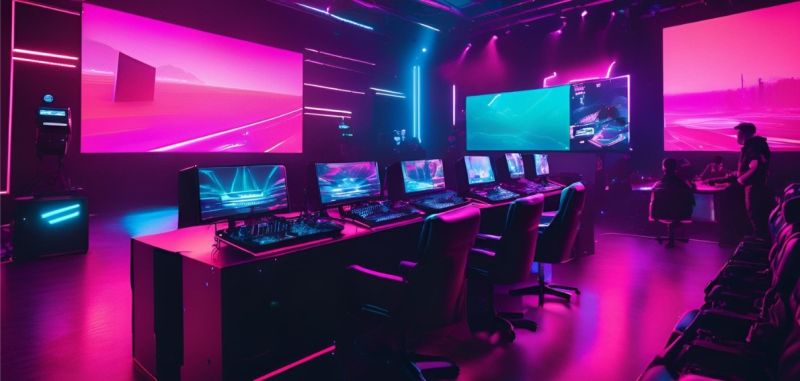
Esports events come in many shapes and sizes. It’s essential to choose the right type for your target audience and objectives. The type of event you host will define everything from your venue and technology requirements to your marketing strategy and esports/gaming specialized ticketing system. Esports teams play a crucial role in promoting events and participating in organized competitions, often backed by franchises and sponsorships.
Types of Esports Events:
Tournaments
The core of esports, involving competitive gaming between players or teams. These can range from grassroots competitions to high-stakes international championships like The International or League of Legends Worlds.
Single-Elimination: Teams or players compete until only one remains, making for an exciting, high-stakes atmosphere.
Round Robin: Every team or player faces off against each other, ensuring a balanced competition.
Brackets & Pools: Often used for larger tournaments, these systems divide competitors into manageable groups, with the best advancing to knockout rounds.
Local Tournaments: These events provide a platform for amateur players to demonstrate their skills and serve as essential stepping stones for aspiring gamers aiming to enter professional leagues.
Conferences and Expos
These events combine industry networking, product showcases, and educational sessions. Popular in the esports community, events like ESL One or BlizzCon serve as spaces for game developers, sponsors, and fans to interact.
Exhibitions: Showcase new games, gaming hardware, and other related products.
Panels & Discussions: Hosted by industry professionals, these sessions offer insight into gaming trends, marketing strategies, and development challenges.
Charity Events
Esports has a strong culture of giving back. Charity events allow gamers to support causes while participating in competitive or casual gaming.
Stream-a-thons: These live-streaming events focus on gaming for a charitable cause, with viewers donating to watch or participate.
League Matches
For ongoing competition, league matches provide regular gameplay between established teams. Think of events like the Overwatch League or Call of Duty League. These offer consistent engagement and maintain a steady flow of content for fans.
Regional Qualifiers: Teams compete to qualify for larger international leagues or tournaments.
Tip for Event Planners:
Before selecting the type of event, identify your audience. Are you focusing on hardcore esports fans, casual gamers, industry professionals, or a combination of all three? Your target demographic will shape your event’s format.
3. Defining Event Objectives
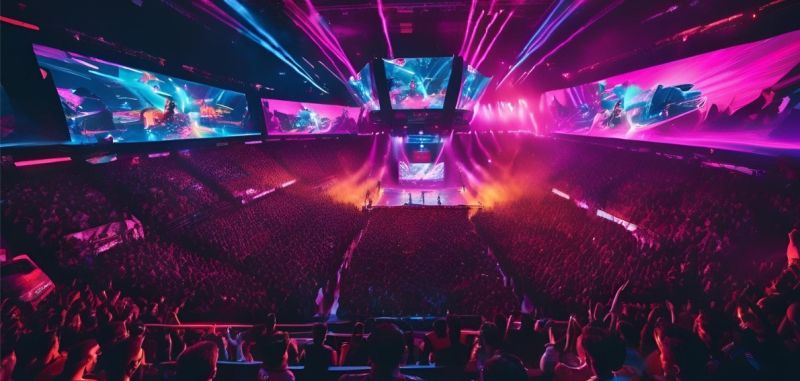
Importance of Clear Objectives
Defining clear objectives is the cornerstone of any successful esports event. Objectives provide a roadmap, guiding every decision from the initial planning stages to the event’s execution. They ensure that all stakeholders, from sponsors to players, are aligned and working towards common goals. Clear objectives also serve as benchmarks to measure the event’s success and identify areas for improvement. In the dynamic world of competitive gaming, objectives might range from increasing brand awareness and generating revenue to providing a platform for showcasing top-tier talent.
Aligning Objectives with Audience and Stakeholders
When setting objectives, it’s essential to consider the needs and expectations of your target audience and stakeholders. For esports events, this includes gamers, esports enthusiasts, sponsors, and partners. Aligning your objectives with these groups ensures that the event resonates with them and meets their needs.
For instance, if your primary objective is to increase brand awareness, you might focus on branding opportunities such as logo placements, product showcases, and sponsored content. On the other hand, if generating revenue is your goal, you could emphasize ticket sales, merchandise, and sponsorship deals. By aligning your objectives with the expectations of your audience and stakeholders, you create a more engaging and successful esports event.
4. Creating a Budget

Budgeting Essentials for Esports Events
Budgeting is one of the most crucial aspects of planning an esports event. With the growing scale and complexity of events in 2025, careful financial planning will ensure your event is both successful and sustainable. From securing the right venue to investing in top-tier technology and staffing, every aspect of your event will need to be accounted for. Proper budgeting helps you avoid unexpected costs and ensures that you’re maximizing your revenue potential without compromising on quality.
Key Budgeting Considerations:
Venue Costs: The venue will likely be one of your largest expenses. Depending on the size of your event, you may need a large-scale arena, convention center, or specialized esports venue. Costs here can vary significantly based on location, capacity, and the duration of the event.
Technology & Equipment: Esports events rely heavily on top-of-the-line technology, and the cost of setting up your event’s tech infrastructure can quickly add up. Depending on the scale of your event, you’ll need to account for gaming hardware, broadcasting and streaming equipment and internet provisions onsite.
Staffing Costs: While you may have a core team managing the event, you’ll need to budget for additional staff to handle various tasks: event managers & coordinators, technical support, security personnel and volunteers are some essential staffing to consider.
Marketing & Promotion: Effective marketing ensures that your event attracts the right audience, whether they are in-person fans or online viewers. While marketing budgets can vary, a strong promotional campaign is key to building excitement and drawing in attendees. This can include digital and traditional marketing as well as collaborations and partnerships.
Sponsorship & Revenue Streams: Sponsorship is a major revenue stream for esports events. Securing sponsors can help offset costs and make the event profitable. It’s essential to factor in the expected income from sponsors, advertisers, and media rights, but also to ensure that your sponsorship deals align with your event’s goals and audience.
Prize Pool & Player Incentives: A major part of any esports event is the prize pool. While these amounts can vary greatly depending on the scale of the event, they should be carefully planned and balanced within your overall budget.
Miscellaneous Costs: Beyond the major line items, there are several smaller but essential costs that could add up, such as permits and licenses, insurance, and stage design and decor.
5. Venue Selection: Where the Magic Happens
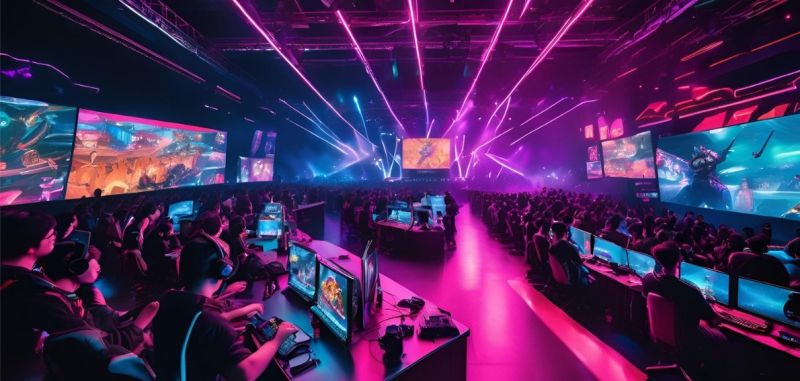
Choosing the right venue is crucial to the success of your esports event, and effective esports event management organizing is key to ensuring everything runs smoothly. The venue you select should accommodate your audience size, support your technological needs, and create an immersive experience for both players and fans.
Key Considerations for Venue Selection:
Capacity: Depending on the size of your event, you’ll need to choose a venue that can comfortably fit your expected audience. For large-scale events, look for stadiums or arenas with a capacity of 10,000 or more. Esports tournament organizers must ensure the venue can comfortably fit the expected audience while meeting all logistical requirements.
Location: Accessibility matters! Choose a venue that’s easy for attendees to reach, with good transport links and local amenities. Major cities often attract larger crowds, but you’ll also want to consider global connectivity if your event has a virtual audience.
Technology: Esports is heavily reliant on technology, including high-speed internet, live streaming infrastructure, and custom gaming setups. Make sure the venue can accommodate these needs.
Branding & Immersion: Look for a venue that allows for heavy branding and customization. Creating an immersive experience where fans feel like they’re stepping into the gaming world is key to making the event memorable.
Examples of Major Esports Venues:
- The Kia Forum in Los Angeles – A well-established esports arena used for major competitions.
- The O2 Arena in London – Famous for hosting large esports tournaments with global audiences.
Tip for Event Planners:
Book the venue early, especially if it’s a popular location. Venues often get booked up a year in advance, particularly for major events.
6. Technology Infrastructure: Powering the Event with Live Streaming
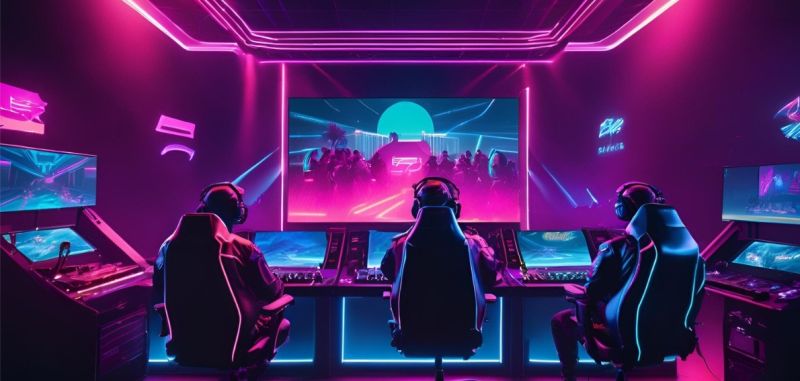
Esports is a technology-driven industry. In 2025, a high-tech infrastructure is essential for smooth event operation. From high-speed internet to cutting-edge hardware, tech planning plays a pivotal role in video gaming event management to ensure everything runs smoothly.
Key Tech Considerations:
High-Speed Internet & Network Infrastructure: Stable and fast internet is essential for competitive gaming, particularly with live streaming and online play. Ensure the venue’s internet infrastructure can handle the heavy load, and have a backup plan in case of connectivity issues.
Gaming Hardware: Esports events require top-of-the-line gaming equipment. Players demand high-performance PCs, monitors with low latency, and reliable peripherals. Work with trusted hardware providers to ensure that all equipment meets the necessary standards.
Streaming & Broadcast Technology: Esports events are a global spectacle, and the ability to live-stream seamlessly is essential. Invest in high-quality cameras, multiple camera angles, and real-time broadcasting solutions to engage both in-person and virtual audiences. The quality of streaming can significantly influence an event’s success, making it essential to invest in high-quality cameras and real-time broadcasting solutions.
Audience Engagement Tools: Fans love to be involved. Use tools such as live voting, fan interaction apps, or augmented reality (AR) features to heighten audience engagement during the event.
Event Apps: Creating a dedicated event app will help attendees navigate the venue, view schedules, access information about teams and players, and receive updates in real-time.
Tip for Event Planners:
Partner with trusted tech vendors and conduct thorough tech rehearsals before the event. The last thing you want is a technical malfunction during a live broadcast.
Also Read: A Complete Guide to Setting Up Your Live Event to Stream on Twitch
7. Sponsorships and Partnerships: Securing Support

Sponsorship is a key revenue stream for esports events, and in 2025, it will continue to be an essential part of the event planning process. However, securing sponsors requires more than just a pitch—it’s about creating value for both parties. An esports event manager plays a crucial role in securing and maintaining these partnerships, ensuring the event’s success.
How to Attract Sponsors:
Understand Your Audience: Sponsors want to know that their brand will resonate with your audience. Conduct research into the demographics, interests, and behaviors of your attendees to attract the right sponsors.
Tailor Sponsorship Packages: Offer a variety of sponsorship packages based on budget and engagement level. These could range from title sponsorships (e.g., “Presented by [Brand Name]”) to smaller packages like in-game advertisements or branded content.
Provide Value: Sponsors want to see a return on investment (ROI). Make sure your sponsorship packages offer clear value through branding opportunities, exposure, and fan engagement. Create opportunities for sponsors to interact with attendees both in-person and online.
Diversify Sponsorship Opportunities: Beyond traditional sponsors, look for partnerships with tech companies, media outlets, content creators, and other organizations related to gaming.
Tip for Event Planners:
Develop creative and measurable sponsorship opportunities, from in-game ads to influencer activations. The more visibility you can offer, the more attractive your event will be to sponsors.
8. Marketing Your Esports Event

Even the best esports events can struggle without the right marketing strategy. To fill seats and attract online viewers, your marketing needs to be engaging, multi-channel, and tailored to your audience. Gathering feedback and analyzing performance metrics can enhance the quality and appeal of future events.
Effective Marketing Strategies:
Social Media Campaigns: Engage fans on platforms like Twitter, Instagram, and TikTok with sneak peeks, countdowns, player interviews, and behind-the-scenes content. Use custom hashtags and encourage user-generated content to build excitement.
Influencer Partnerships: Work with gaming influencers and content creators to promote the event. They already have loyal fan bases who trust their opinions.
Email Marketing: Send personalized invites, ticket updates, and exclusive content to your mailing list. Create early bird promotions to drive ticket sales.
Collaborations with Game Developers: Partner with game developers to cross-promote the event. Exclusive in-game rewards for event ticket holders can incentivize fans to attend. Highlighting the competitive nature of video games can attract more participants and viewers.
Live Streams & Pre-Event Coverage: Use live-streaming platforms like Twitch or YouTube to broadcast pre-event content, player interviews, and highlight reels.
Tip for Event Planners:
Leverage the power of storytelling. Share the event journey, from the planning stages to the big day, creating a narrative that connects emotionally with your audience.
9. Ticketing & Attendee Experience
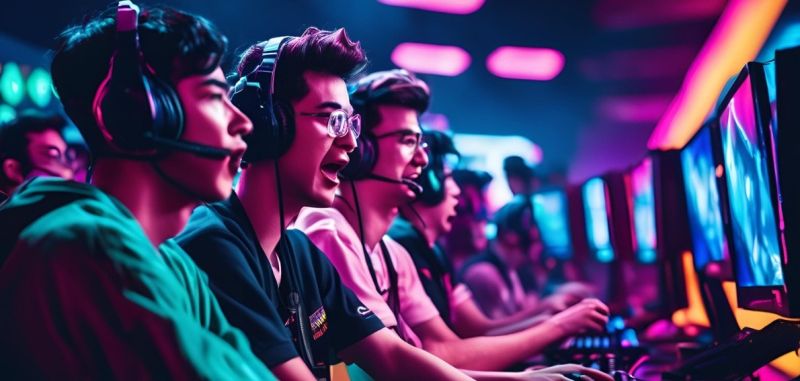
The attendee experience is a crucial component of a successful esports event. In 2025, fans expect a seamless ticketing process, both for in-person and virtual attendance. Proper planning and execution are key elements that contribute to successful esports events.
Ticketing Considerations:
Digital Ticketing: Use a digital ticketing platform to make the purchasing and entry process smooth. Offering mobile ticketing can help attendees avoid physical tickets and reduce wait times. Digital ticketing platforms are essential for organizing gaming tournaments, ensuring a smooth purchasing and entry process.
VIP Packages & Early Access: Provide exclusive experiences for VIP ticket holders, such as meet-and-greets with players, backstage tours, and premium seating.
Group Discounts & Community Engagement: Offer discounted group tickets or community-driven promotions to boost attendance and engagement.
Tip for Event Planners:
Ensure that ticket sales are easily accessible and that the entry process at the event is swift. Use QR codes for quick scanning and avoid long lines.
Conclusion
Esports event planning in 2025 will demand creativity, strategic thinking, and a deep understanding of the ever-evolving gaming landscape. By embracing the latest trends in hybrid experiences, technology, sustainability, and fan engagement, event organizers can create unforgettable esports spectacles that captivate both in-person and online audiences.
Whether you’re hosting a local tournament or an international esports tournament, keeping the fan experience at the center of your planning will ensure your event is a success. Happy planning!
You May Also Like:
Technology Against Ticket Scalping: 2025 Trends and Tips
RFID Technology For Event Ticketing In 2025: The Complete Guide
SEO Tips for Event Organizers: The Ultimate Guide to Boost Your Event’s Online Visibility in 2025


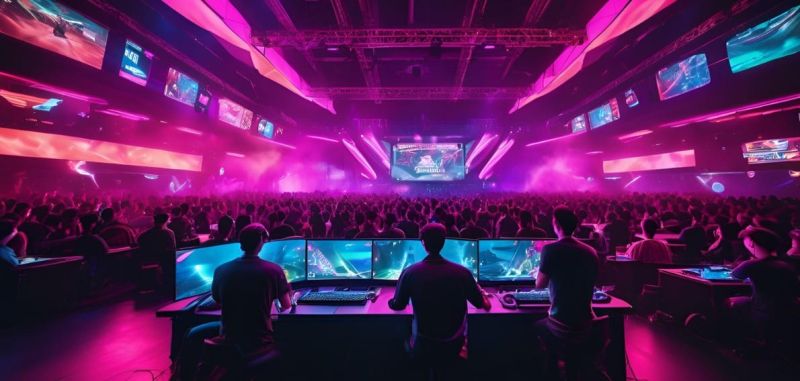
 5th September 2024
5th September 2024